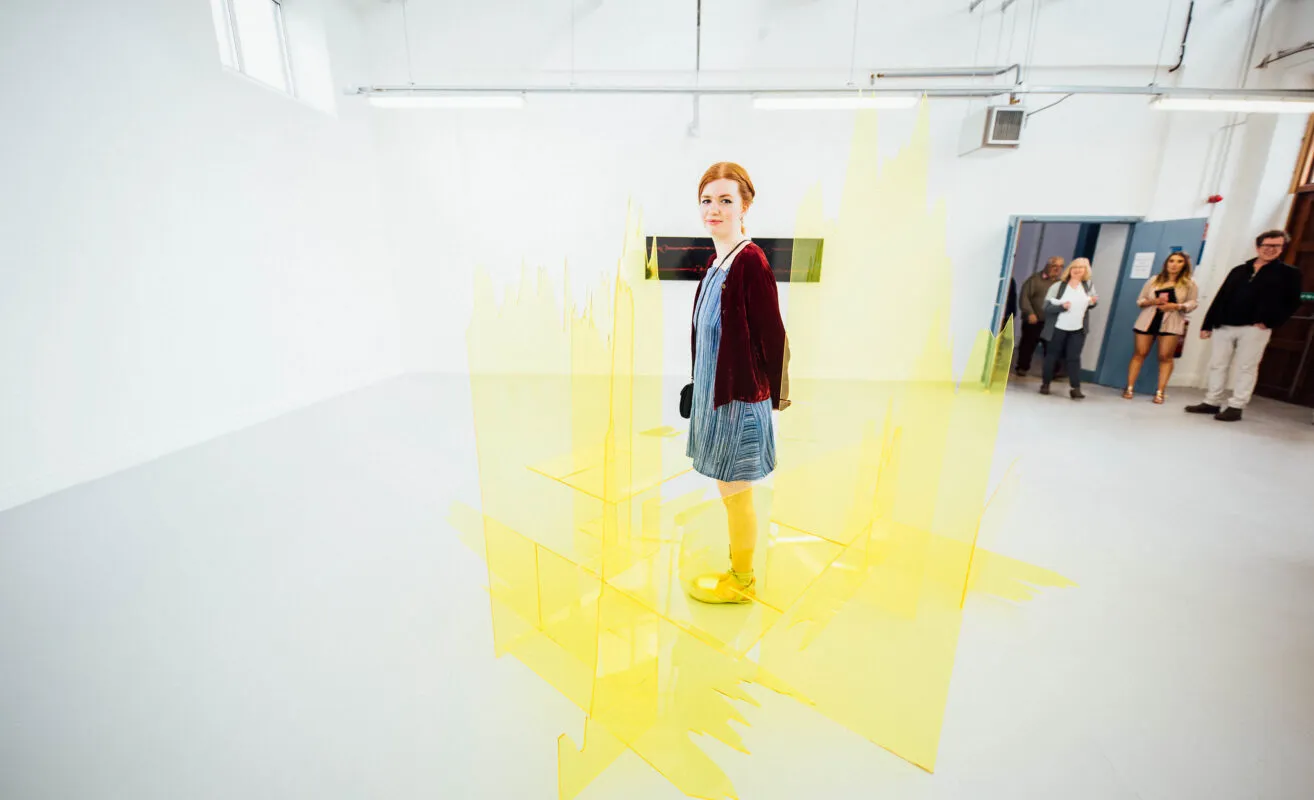Why Choose BA (Hons) Sculpture & Combined Media?
In our workshops, chisels meet pixels, clay meets canvas, and tradition dances with technology. We’re not confined to stone or steel; we’re alchemists of expression. From clay to code, wood to wire, you’ll craft narratives that defy gravity.
Studio Alchemy: We take a multi-media approach to making and experimentation, from video installations to kinetic sculptures, the studio is a cauldron of ideas.
Beyond the Block: Sculpture isn’t solitary; it’s a conversation. On this programme we invite you to step beyond the studio and curate exhibitions, get involved in public art commissions and plan cultural events so that you can become a cultural producer and an architect of experiences.
Forge Your Path: On this programme, you will master the art of curation, promotion, and education. You will be given opportunities to unleash your creativity in galleries, public spaces, and classrooms.


